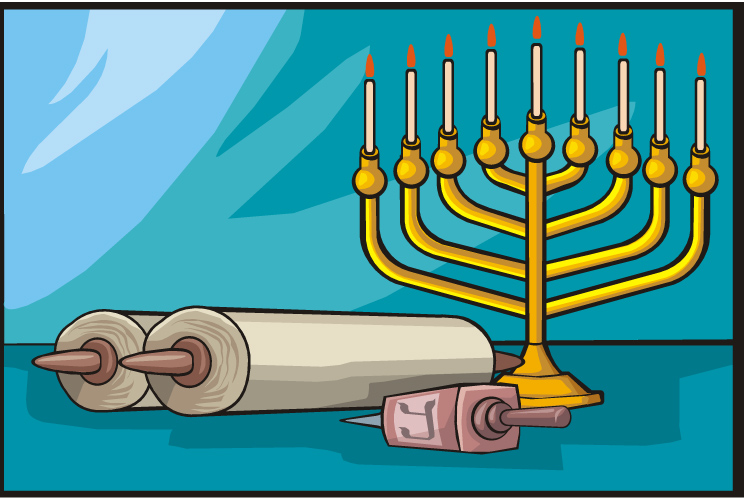Hanukkah is a traditional, non-biblical Jewish holiday that falls in December and commemorates the Jews’ military defeat of the pagan Greeks and their dedication of the temple in Jerusalem after the heathens had desecrated it through idolatry and forbidden biblical practices. According to tradition, as part of the rededication ceremonies, some holy olive oil was needed to light the temple’s menorah, yet none could be found, until someone found a small vessel containing only enough oil to last for a day. This oil was poured into the menorah, and miraculously the oil burned for eight days, which is why Hanukkah is celebrated for eight days. The historical events behind Hanukkah are chronicled in the apocryphal Book of First Maccabees (chapters one and two). These events occurred about 160 years before the birth of Yeshua (Jesus).
Though Hanukkah is a minor holiday, and is not a commanded biblical festival, there is record in the Testimony of Yeshua (New Testament) that Yeshua was at the temple in Jerusalem during Hanukkah (a Hebrew word meaning “to dedicate”), also known as the Feast of Dedication (John 10:22).
Hanukkah should not be viewed as a replacement for Christmas and in fact pre-dates the Christian Christmas by hundreds of years. It is a stand-alone holiday that has nothing to do with Christmas. In reality, Christmas is the melding together of some Biblical beliefs (i.e., the birth of Yeshua, although he wasn’t born in December!) with many traditions that are undeniably pagan in origin (see any encyclopedia on the subject of the origins of Christmas), including the biblically forbidden and idolatrous heathen practice of cutting, setting up and decorating a tree (Jer 10:1–8), which Scripture refers to as a vanity tree and regards as a foolish heathen activity (Jer 10:8). On the other hand, Continue reading


